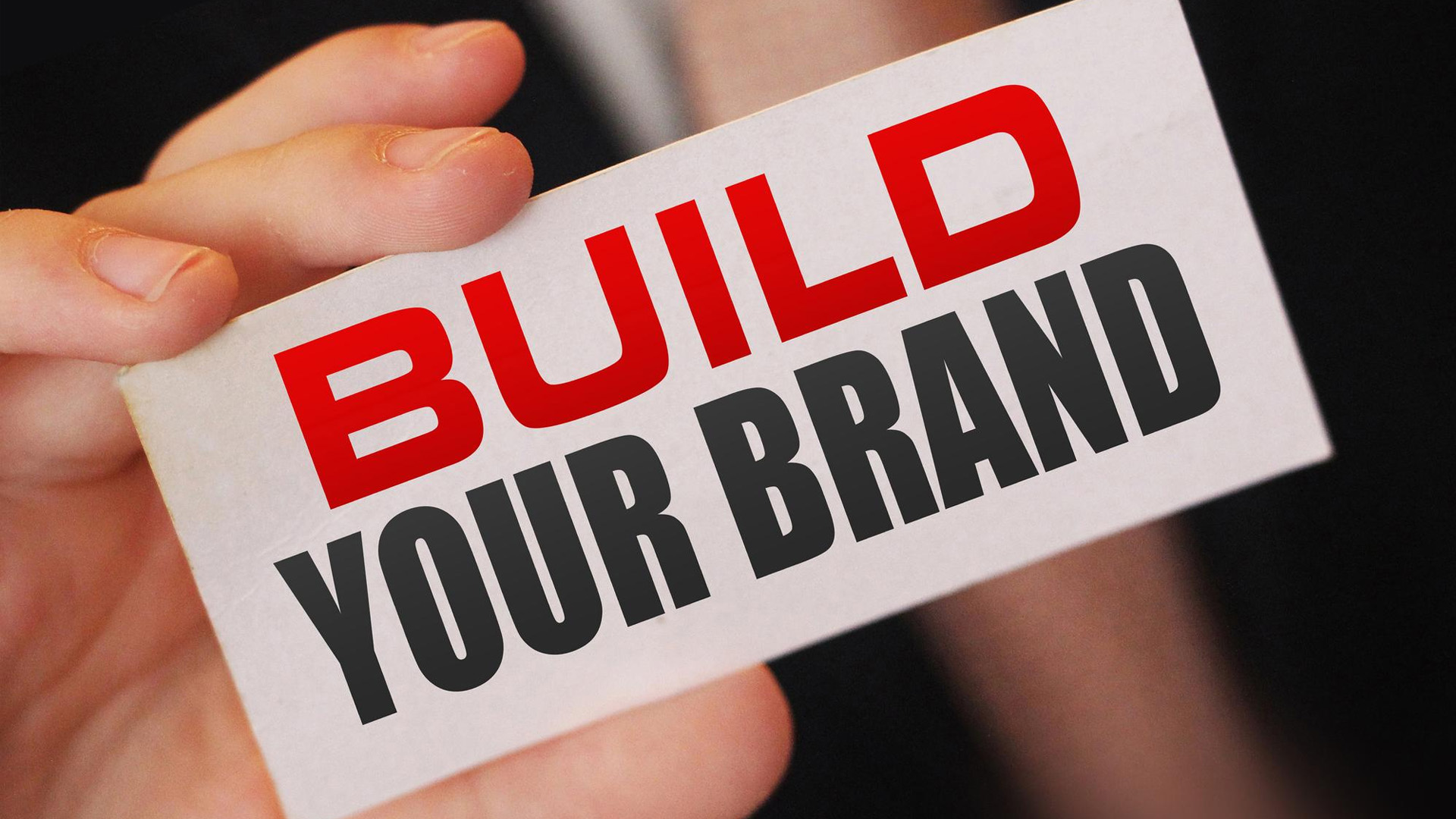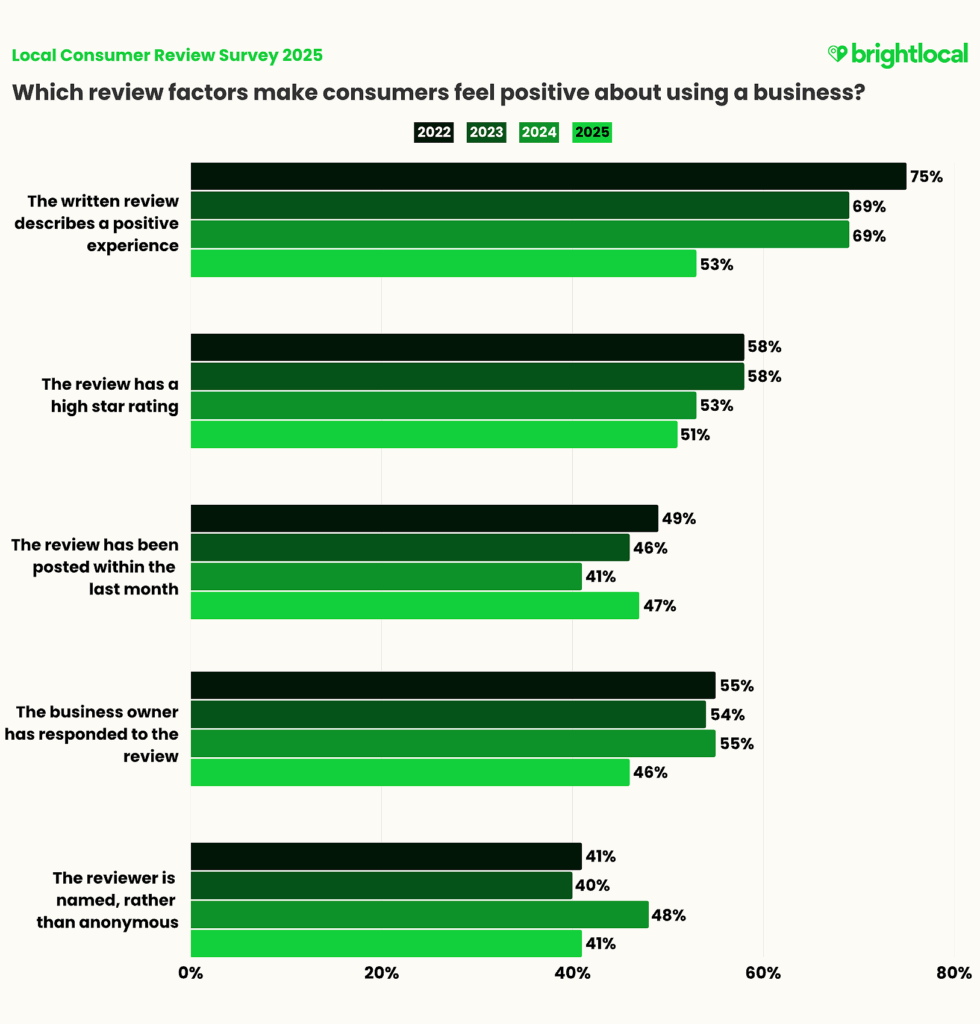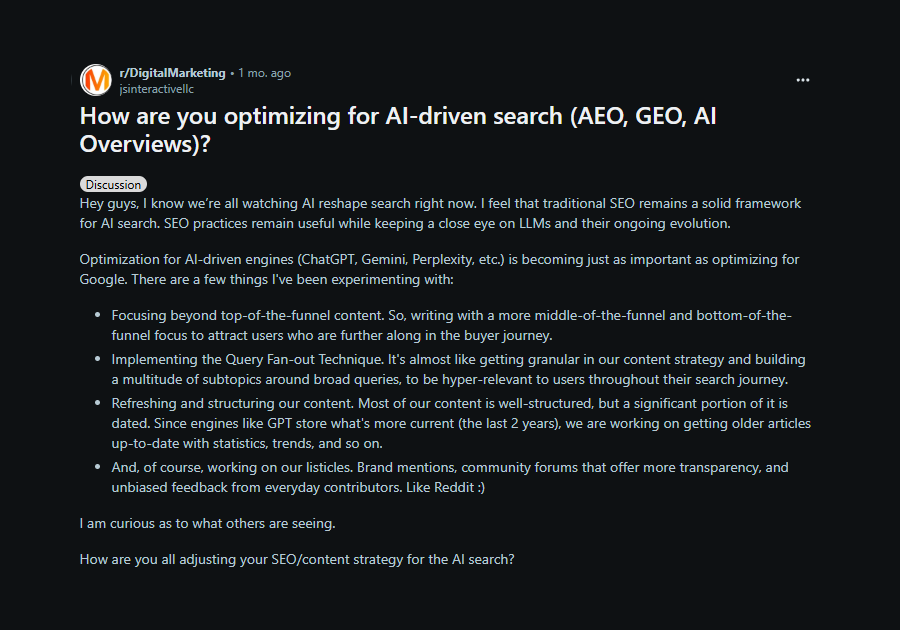Brand Trust and Authority: 7 Ways to Build Long-Term Credibility

I work out regularly at Life Time Fitness and often see Xero Shoes promotions on multiple screens throughout the gym. They’re hard to miss; repetitive and displayed near the treadmills and in the training area.
What makes the shoes super appealing is not the ad itself, but the brand that stands behind it.
Life Time is a credible business with genuine authority.
Seeing their name attached to Xero Shoes makes the product feel more trustworthy, like something worth checking out.
This is the power of brand authority. It fosters trust before a purchase is even made.
The Real Problem with AI-Influenced Content
Am I alone in this? When an email hits my inbox with the subject line ‘Unlock’ or ‘Unleash’, I am immediately inclined to hit the delete or spam button.
This is a clear reminder for me that authority and trust can’t be automated.
In a survey of 3,000 U.S. adults, trust decreased by nearly 50% when people suspected that AI produced the content, and another study found that roughly half of consumers can easily identify this type of content.
Smooth sentences. Recycled phrasing. Answers that technically address a question but don’t offer perspective or personality.
It’s the kind of writing that feels fine to read but easy to forget.
That’s what happens when content feels manufactured instead of meaningful.
When everything blends, people stop paying attention. And when attention fades, so does trust.
What Sets Trusted Brands Apart
When people recognize and trust a brand, every interaction carries more weight.
They’re more likely to click, share, or buy because they already believe in who’s behind the message.
That kind of trust doesn’t happen overnight. Like any relationship, it grows through consistency and genuine expertise.
Trusted brands benefit from higher visibility in AI Overviews and organic search results. They also see more branded searches and stronger recall across different platforms.
AI-powered search results are trusted less than traditional search, but including citations and reference links makes people far more likely to believe what they read.
The takeaway is simple. Credibility signals matter, both for humans and for algorithms.
7 Building Blocks of Brand Authority
These seven building blocks form the foundation for how brands earn and sustain trust over time.
1. Credible Mentions
I paid attention to Xero Shoes because a brand I already trusted was promoting them.
That’s the power of credibility, which often starts with genuine trust, the kind that grows when people share real experiences and talk about a brand with confidence.
For brands, credible mentions go beyond visibility. They validate expertise.
Appearing in respected publications, trusted directories, or industry sites signals that your business is reliable and worth listening to.
These mentions also strengthen your digital footprint. When people and platforms (AI included) repeatedly see your name in credible places, it reinforces trust in everything else you share.
2. Third-Party Validation
People trust what others say about you more than what you say about yourself.
That’s why third-party validation remains one of the strongest drivers of brand authority.
Reviews, testimonials, and earned media coverage act as proof points. They show that your expertise holds up under outside scrutiny. When customers share their experiences or industry voices highlight your work, it adds weight that can’t be manufactured.
According to BrightLocal’s 2025 Consumer Review Survey, 42% of consumers trust business reviews as much as personal recommendations.
What matters most to them isn’t the quantity of reviews. It’s the quality.
Fifty-three percent of consumers report feeling more positively about a business when a review clearly describes a positive experience. At the same time, 46% say their trust in the business increases when the business owner responds to reviews.

Detailed, authentic feedback, paired with real engagement from the brand, turns reviews into lasting proof of credibility.
3. Community Presence
Authority grows where people gather.
That’s why showing up in active online communities matters.
Places like LinkedIn, Reddit, and industry forums offer something traditional marketing channels can’t: genuine conversations.
When brands contribute insights rather than self-promote, they become trusted voices within those spaces.
A simple post that shares an observation or starts a discussion can go further than a polished blog.
On platforms like Reddit, users value transparency and shared experience. Posts that spark genuine dialogue or constructive debate often reach a wider audience and build credibility in ways that paid content can’t.

Communities reward consistency and authenticity. The more often people see your name adding value, not selling, the more your authority sticks.
4. Expert Content
Audiences are quick to recognize shallow content.
They can tell when something was written to meet a deadline instead of to share something meaningful.
The content that earns trust reflects real experience. It includes specific examples, lessons learned, and insights that can only be gained from doing the work. That’s what gives it weight and keeps people reading.
Google’s E-E-A-T framework reflects the qualities people value most. It prioritizes content that demonstrates understanding, rather than just conveying information.
That kind of depth also improves visibility. Through query fan-out, one search often branches into several related questions. When your content explores a topic from multiple angles, it’s more likely to appear across those connected results, including AI-generated answers.
Expert content doesn’t try to sound perfect. It focuses on being useful and real.
That authenticity is what builds authority that lasts.
5. Consistency Across Channels
Trust fades quickly when a brand sounds different in every place it appears.
If your website says one thing, your social posts say another, and your tone shifts again in emails, your audience notices.
Consistency reinforces credibility. It tells people your brand knows who it is and what it stands for. That applies to your visuals, your messaging, and even how you respond to feedback.
One of the best ways to maintain that alignment is by creating a clear brand messaging guide. It defines your voice, tone, and key themes so every piece of communication feels like it comes from the same place. A strong messaging guide also helps teams stay unified as the brand evolves, keeping the story intact regardless of who is writing it.
Consistency also strengthens visibility across channels. When your message and proof points remain aligned, your brand becomes easier for your audience and AI systems to recognize and remember online.
When every touchpoint feels familiar and authentic, people begin to trust not just what you say but who you are.
6. Visible Human Leadership
People trust people, not faceless brands.
That is why visibility from real leaders, employees, and subject matter experts matters more than ever.
When audiences can see the people behind the brand, they form stronger connections built on honesty and authenticity.
Authentic voices make a company approachable and credible, while artificial ones often have the opposite effect. Research from Northeastern University found that AI-generated influencers can weaken brand trust compared to authentic human voices.
There are many ways to make that visibility part of your brand:
- Share leadership perspectives through blogs, videos, or podcast appearances.
- Highlight employees who represent your values and culture
- Encourage experts within your company to participate in industry conversations.
- Participate in in-person presentations, community events, or speaking engagements.
- Be transparent about who creates your content and how it is produced.
Visible leadership gives audiences a reason to believe in the people behind the message.
When leaders share their experiences, take ownership, and communicate with transparency, a company name becomes far more powerful. It becomes a brand people actually trust.
7. Visual Identity and Experience
We have all visited a website that instantly felt off.
Maybe the layout was cluttered, the images were low quality, or the navigation was confusing.
Most of us do the same thing in that moment. We leave and look for a competitor that feels more trustworthy.
Visual presentation shapes first impressions. People decide within seconds whether a site feels credible, and that decision often comes down to design and usability.
Strong visual identity and thoughtful user experience work hand in hand.
Clean design, consistent branding, and simple navigation show care and attention to detail. They signal that the same thoughtfulness likely extends to the way a business serves its customers.
A strong brand does not just sound credible. It looks credible. Design and experience together create authority before a single word is read.
Practical Ways to Earn Trust
Authority is built over time through consistent actions, not one-time efforts.
Every interaction, response, and piece of content contributes to how people perceive your credibility.
Here are a few ways to strengthen that trust:
- Use specifics. Share real examples, case studies, or results that demonstrate your expertise.
- Highlight the people behind the brand. Let employees, partners, or clients tell part of your story to make it more relatable.
- Stay consistent. Keep your messaging, visuals, and tone aligned across all channels.
- Invite feedback. Respond to reviews, questions, and comments with honesty and empathy.
- Show ongoing growth. Update outdated content, refine your positioning, and continue sharing what you learn.
Building authority is not a campaign. It is a commitment.
The more often your audience sees proof of integrity and expertise, the more naturally trust follows.
Build Authority and Trust with Help from JS Interactive
AI can generate words, but it cannot generate trust.
The brands that rise above the noise are those that demonstrate genuine credibility and expertise through every interaction.
Authority is not built overnight. It grows through consistency, transparency, and genuine experience shared over time.
When your brand leads with honesty and delivers value, recognition follows. Ready to strengthen your brand authority? Contact us today, and let’s turn your expertise into lasting credibility.